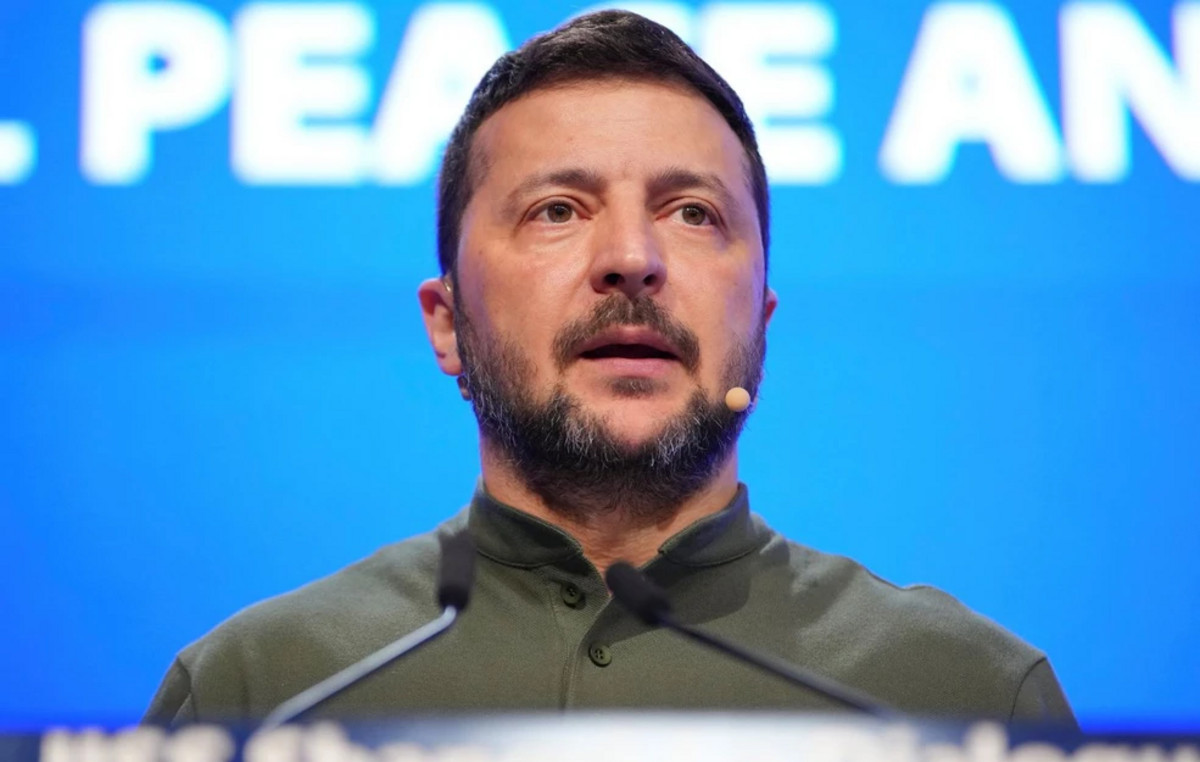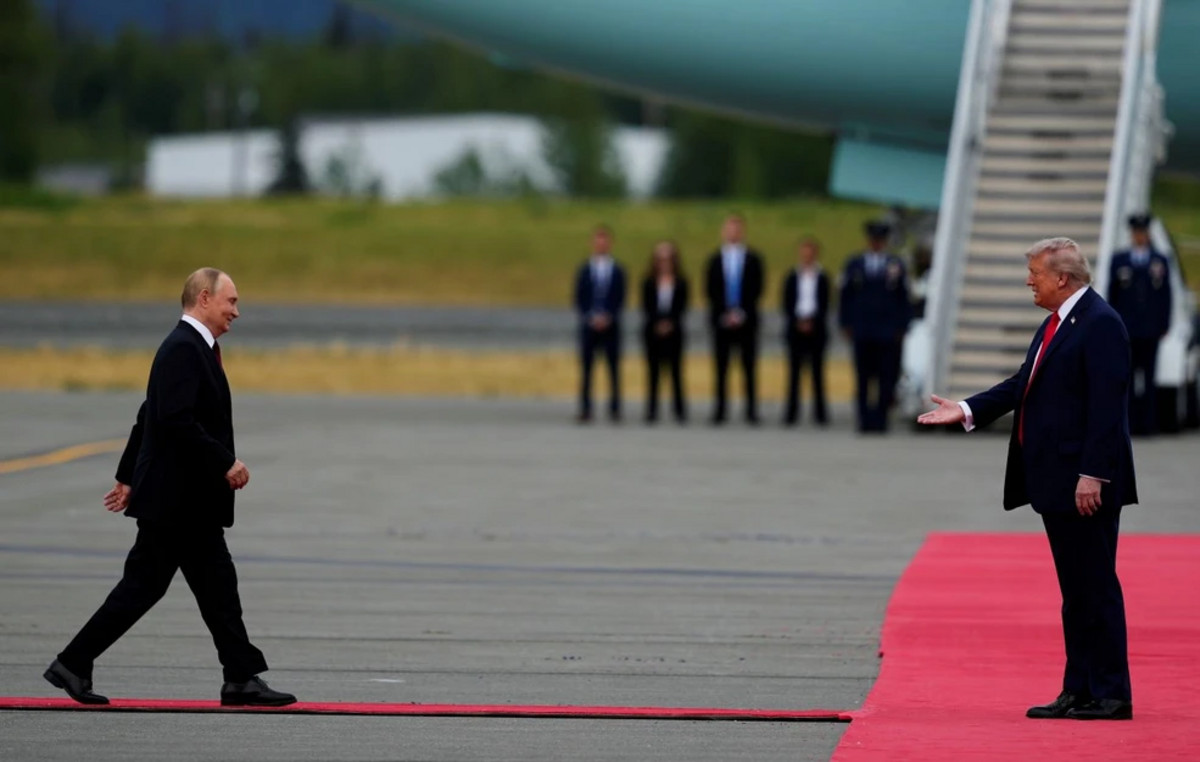As the standoff between Russia and the West enters a potentially decisive phase, US President Joe Biden meets Monday at the White House with Germany’s new Chancellor Olaf Scholz. , whose willingness to confront Moscow on the US side was questioned.
Scholz took office in December, succeeding a leading figure in global politics — Angela Merkel — whose absence during the current crisis is being felt on both sides of the Atlantic.
The chancellor arrives in Washington at the same time that Russian President Vladimir Putin has assembled 70% of his military contingent and weapons on Ukraine’s borders needed for a full-scale invasion of the country, based on US intelligence estimates — though no one seems to know what their true intentions might be.
Amid the uncertainty, Biden is excited about the idea of demonstrating Western unity against a Putin aggression. Ahead of the president’s meeting with Scholz, US officials said the two leaders would spend most of their time together discussing the Ukraine issue, including a “robust sanctions package” being prepared to punish Moscow if an invasion takes place.
Ukrainian border tensions gave Monday’s meeting in the Oval Office the air of crisis talk, though Biden also hopes to use the session to meet Scholz in person, as they are likely to spend much more time together in the years to come. They have met before, when Merkel brought Scholz to the G20 summit in October. Biden tried to repair ties with Germany after former President Donald Trump publicly accused the country of shirking its international obligations.
Hovering over the meeting, however, is the question of Scholz’s determination to confront Putin. Among the US’s main European allies, Germany appears to be the most reluctant to commit to lethal aid, sending humanitarian aid rather than weapons and refusing to allow another NATO ally, Estonia, to send German-made artillery to the United States. to Ukraine.
Germany has not joined the United States, France, Spain and other NATO allies in strengthening troops across Eastern Europe. Scholz also did not elaborate on what sanctions he might be willing to impose on a country that is still an important trading partner for Germany.
US officials frustrated
The impression that Germany is unwilling — or, because of its energy dependence on Russia, unable — to offer serious crackdowns has left some US officials frustrated.
Both Republican and Democrat members of Congress have voiced their displeasure, and even Biden hinted at discord, saying last month that a “small incursion” by Russia into Ukraine would spark some disagreement among NATO members over how to respond.
Last Sunday, a senior US government official tried to play down any concerns about Germany’s position, saying that each NATO member brought their own particular forces to the table.
“The beauty of having an alliance with 30 NATO allies is that different allies come together to take different approaches to different parts of the problem,” the official said, noting that the US and Germany are working closely on sanctions and that the Germany is an important economic player, responsible for providing humanitarian assistance and making donations to Ukraine.
The official also highlighted Germany’s diplomatic efforts, alongside France, to revive a ceasefire agreement between Ukraine and Russia. Also according to him, the US and Germany are aligned in their vision of the accumulation of troops along the border with Ukraine.
“I think our countries are unified in terms of awareness of the risk of a new Russian aggression against Ukraine. We have long shared intelligence with Germany, with the rest of our allies. We’re having a lot of conversations, both from the White House and the State Department, with our embassy in Berlin, our other agencies, about the situation. I think there is absolute agreement that if there is more Russian aggression, there are a number of things that need to be done regarding sending additional troops to the east side and imposing a major economic sanctions package,” the official said. .
Scholz insisted that Russia will pay dearly if its troops cross into Ukraine.
“We are intensely engaged with all our allied partners in the European Union, with the Ukraine issue, almost no issue concerns us anymore,” Scholz said in an interview with German public broadcaster ZDF before traveling to Washington. He went on to say that an attack by Russia on Ukraine would come at a “very high price”.
Ahead of their meeting, Scholz told the Washington Post in an interview published on Sunday that “our response will be united and decisive” to a Russian invasion, seeking to clear the impression of a fractured alliance. The chancellor also has an interview scheduled on the program “The Lead with Jake Tapper” from CNN American this Monday, a rare opportunity for a foreign leader intent on reversing the feeling that he is on a different page than the US.
Nord Stream 2’s fate
Still, the new chancellor declined to say whether a Russian invasion of Ukraine would end the Nord Stream 2 pipeline, which carries Russian natural gas under the Baltic Sea to Germany, bypassing Ukraine. The US opposes the pipeline.
The day before Scholz arrived at the White House, Biden’s aides made their position clear, even as the visitor shied away from the matter.
“If Russia invades Ukraine, one way or another, Nord Stream 2 will not advance,” White House national security adviser Jake Sullivan said on NBC’s “Meet the Press” show. “And Russia understands that. We are coordinating with our allies in Europe on this and this will be the reality if Russia decides to move forward.”
The senior administration official told reporters that the US had made its position clear to the Scholz administration. “We will continue to work closely with Germany to ensure the pipeline does not go forward,” the official said.
The Nord Stream issue underscores the German chancellor’s plight in confronting Russia for its aggressions in Europe. Germany is heavily dependent on Russian energy, which makes it difficult to impose harsh punishments without risking an oil and gas cut during the cold winter months.
The US has been looking around the world for alternative energy sources that can be diverted to Europe, from Asia to the Middle East to US domestic suppliers. It’s unclear how successful the initiative was, and some countries said their gas supplies are already exhausted.
Scholz, meanwhile, faced an internal crisis in which a predecessor of his political party was discovered to have established close ties to the Russian energy industry. Gerhard Schroeder, the last Social Democrat politician to serve as chancellor, serves on the Nord Stream 2 board. And last week, Russian state gas giant Gazprom announced that Schroeder had also been appointed to its board.
Merkel’s absence
There has been only one other chancellor since Schroeder stepped down in 2005: Angela Merkel, whose absence from the world stage after her 16-year term has been keenly felt, especially as Putin tests the West’s resolve.
When Russia last invaded Ukraine in 2014, Merkel played a central role as an intermediary between Putin and Germany’s western allies. She spoke to the Russian president consistently and encouraged other leaders to step up their sanctions to punish Moscow for annexing Crimea. She also played a pivotal role in keeping Washington fresh through the close relationship she cultivated with then-President Barack Obama.
This time it is not the German leader who is emerging in that role, but the French one. French President Emmanuel Macron spoke several times a week with Putin and made his third phone call in a week to Biden on Sunday night. Macron will visit Moscow and Kiev earlier this week.
Scholz has yet to play such a visible role in defusing the latest crisis, which has earned him criticism from Germans who accuse the chancellor of being invisible at a time of tension. In an apparent attempt to end that impression, Scholz will also visit Russia and Ukraine later this month.
Source: CNN Brasil
I’m James Harper, a highly experienced and accomplished news writer for World Stock Market. I have been writing in the Politics section of the website for over five years, providing readers with up-to-date and insightful information about current events in politics. My work is widely read and respected by many industry professionals as well as laymen.







